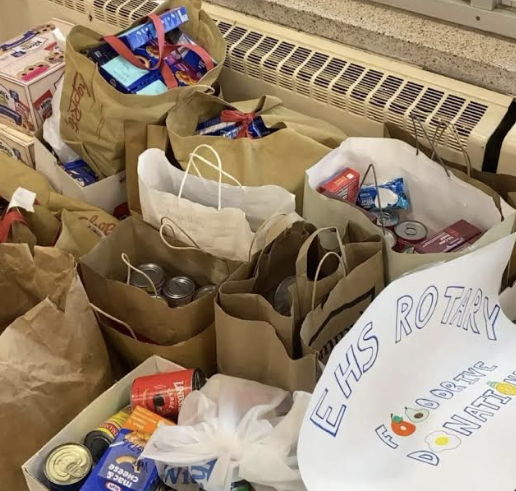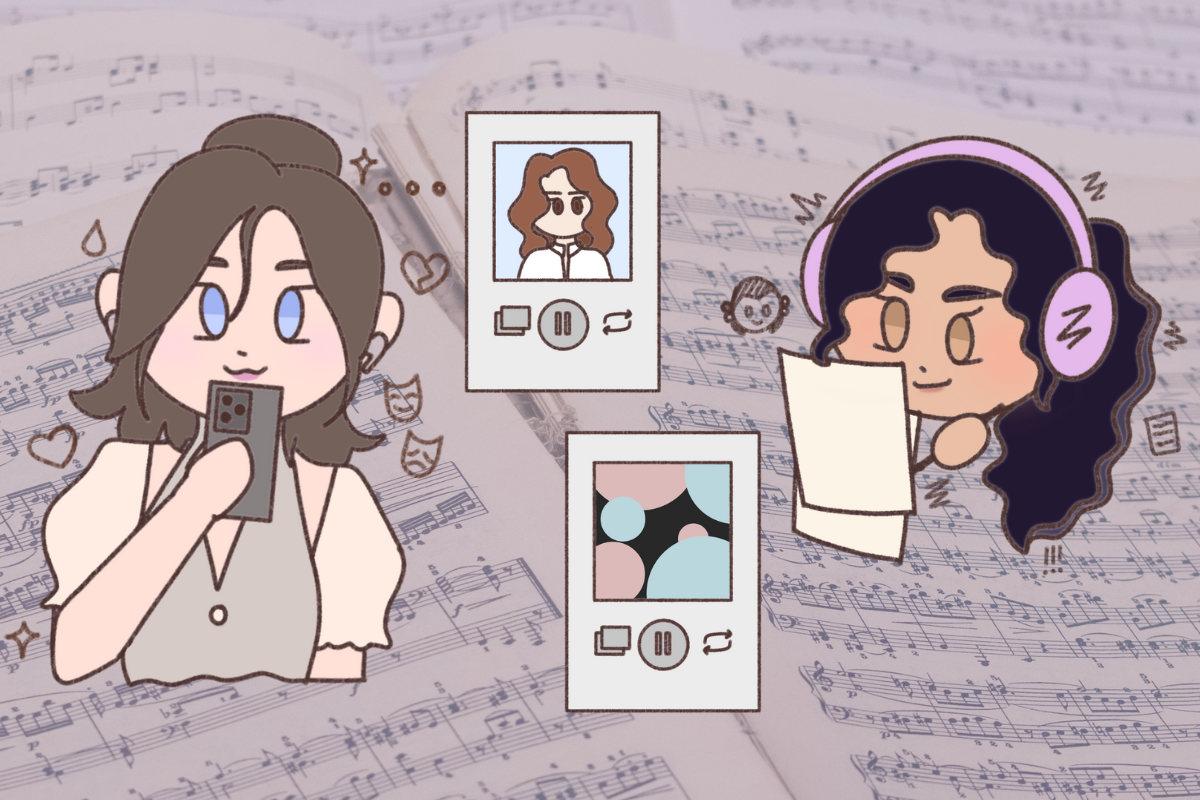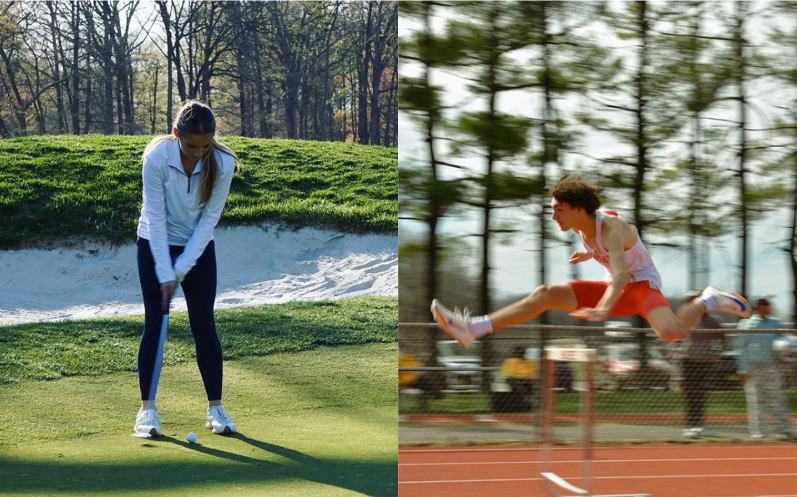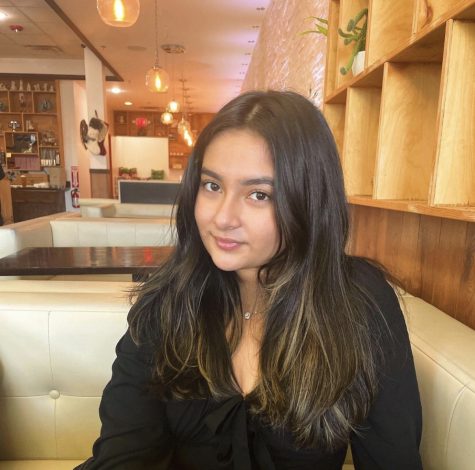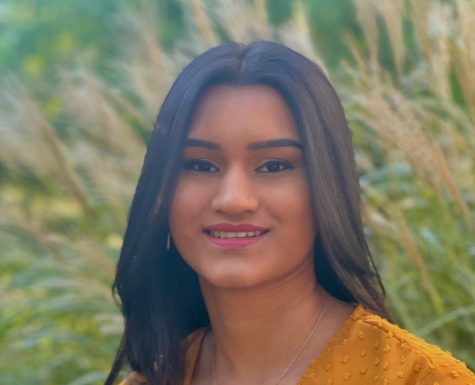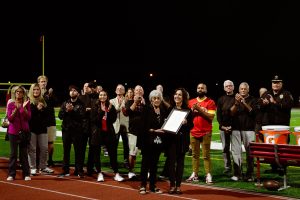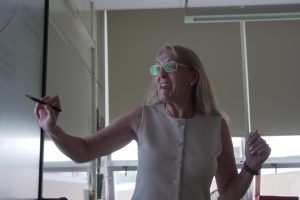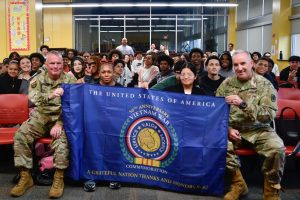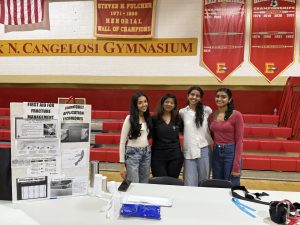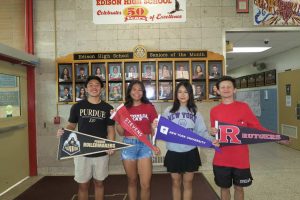Vaccines and Vexations
April 19, 2021
As more and more students and teachers receive the COVID-19 vaccine, the thoughts of reopening schools became more prevalent. On the week following spring break, the Edison Board of Education plans to quarantine for two weeks and then have all the in-person students be in school full-time.
For Edison High School students, this experience has proven to be a chaotic one. With administrators scrambling to find a seamless system of normalcy, and students struggling to adapt, the vaccine has become a prominent topic of conversation in the Edison High School community.
In general, the vaccine provides additional safety from the virus. “The COVID vaccine will allow for students to safely learn in classrooms, with teachers possessing the vaccine and having resistance against the vaccine,” said Devam Mondal ‘23. “Unfortunately, none of the vaccines yet have been approved for individuals as young as high school, middle school, and elementary school students.”
Most students in the public school system are ineligible to receive the vaccine, with two of the three common brands of the COVID vaccine, Pfizer, Moderna, and Johnson & Johnson, being untested for teens under sixteen.
For some families, the inaccessibility of the vaccine for younger students causes some uneasiness. Amber Valera ‘23 shares this common sentiment of wariness. “I wouldn’t feel comfortable going back to school unvaccinated. School being all day five days a week now is risky, especially since the school got rid of the cleaning days, so who knows how efficiently they’re cleaning and sanitizing. I have family members with autoimmune diseases so I’d be putting myself and my loved ones at risk,” said Valera.
Previously, Edison High School implemented a block schedule, where half of the in-person students would come in on Mondays and Tuesdays, while the other half came in on Thursdays and Fridays. On Wednesdays, all students and much of the staff attended school virtually, and the school was sanitized on that day. Some students have expressed their concerns regarding this change of routine in the midst of disparities in vaccine distribution.
Other students also expressed concern regarding the return to in-person schooling. Although vaccines are becoming available for adults, some students will still be staying remote for the fourth marking period.
“I think remote learning is still the best option for me. I’m glad vaccines are becoming more accessible, but they’re still hard to get and until my entire family isn’t fully vaccinated, I don’t see myself going [outside my house],” said Virali Nagda ‘21. Vaccine distribution and age restrictions play a factor in the decision to attend school in-person rather than virtually.
However, some others also feel comfortable going in person to school fourth marking period, as Adarsh Patel ‘23 said: “I do believe in vaccines in general, and it is the way to go with the whole COVID pandemic. It is a virus, and there is a vaccine… I am planning to go back to school for the fourth marking period because my chances of getting the virus have been drastically decreased. [Online] school definitely hasn’t been the same… But I’m glad students in our school had a say in whether they wanted to go back or stay home.” Schools have been giving a choice to Edison families for either in-person learning or virtual learning since they began using the hybrid model of learning starting October 19, 2020.
It is a virus, and there is a vaccine…
Adarsh Patel ‘23
Even with students going to school in person, the return to normalcy remains under question. “I think that considering the current state of distribution, it will take quite a while before we get back to normal… I think that unless the distribution process is changed somehow, the return to normalcy will take some time,” said Vasumathi Venkat ‘22. She also does not plan on returning to school in the fourth marking period: “Considering that I won’t be able to get the vaccine for a while, it doesn’t seem like a safe bet.”
As students and teachers return to the classrooms after spring break, some anticipate changes in the teaching style and education. “Perhaps [the teaching style] will be more oriented to in-person students than remote so that teachers aren’t just talking to grey boxes, they’re also talking to real people in the classroom,” Venkat said.
Some teachers also have similar experiences with remote learning.
For teachers, this experience has been one requiring constant adaptation. A shared hope for normalcy has been prevalent in the school community, however there are still many aspects of life at Edison High that cannot be restored for some students.
Mrs. Gina Corsun, English teacher, explains how the idea of “normal” is different than it used to be. “I think that it will take a while for things to be normal again. I don’t feel ready to eat in a restaurant or go to the movies yet. I’m not sure that things will ever be “normal” as we used to know it” said Corsun. “The freshman class has never been in the building. The students will need time to acclimate to high school life. Isolation has taken a toll on teachers and students, as well as social and political issues, and those won’t go away when everyone is vaccinated. It will take time, patience, and adaptability.”
As the world returns to a “new normal,” the Edison community started to open up public places, and many feel that naturally, schools should follow suit.
Corsun said that schools are optimistic for full-capacity in-person schooling. “I would love it if everyone could return to school for the fourth marking period. Realistically, I think we will all be back in September,” she said.
“Studies have shown that there is less transmission in school than in the community. For now, if we keep masks on, wash hands, and social distance (3 feet in school is now recommended), I think we’ll be fine. Gyms, restaurants, and movie theatres (to name a few places) are open to more and more people. Supermarkets have been open throughout the pandemic. Schools should be open too, especially now with more teachers/staff being vaccinated,” said Corsun.
Similar feelings of hope for the coming months are shared by History teacher Ms. Leanne Rubiano. “I look forward to the day when we can all be in the school building together and feel safe in doing so. I am grateful for the scientific achievement that the COVID-19 vaccine represents. I hope that the distribution of the vaccine will allow for a recovery of what has been lost in learning,” Rubiano said.
As prospects of further vaccine distribution open up, students have begun the process. Ayush Jasnani ‘21 has already received their vaccine.
“So it took me a really long time for the NJVSS to send me my appointment link, but when I got the link, it sent me to a calendar so I could schedule my appointment, and slots were as close as the next day which is what I did,” Jasnani said. “The whole process when I got there was very organized and professional… Getting the vaccine was actually painless. I’ve taken many shots for my allergies and other vaccines and this one actually hurt the least. As for the rest of the day there was some swelling and pain in the area but nothing more… Overall the vaccine is nothing to be scared of, and if you get the chance, please go schedule an appointment!”





